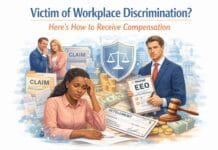Bars and clubs are where people go to relax, dance, and connect. These spots are meant to offer good music, good vibes, and a break from the everyday—but they also come with real risks. For many, especially women and marginalized groups, safety isn’t guaranteed. Sexual assault in nightlife spaces is more common than many realize, and too often, it gets brushed aside.
When victims speak up and get ignored, the message is loud and clear: the venue’s image matters more than someone’s well-being. That silence protects predators and puts others in danger. It’s time to talk about what happens when bars look the other way.
Legal Consequences for Bars and Clubs That Ignore Sexual Assault Complaints
When bars and clubs ignore sexual assault complaints, they risk serious legal trouble. As a sexual assault lawyer explains, “Survivors can sue for compensation and justice. Sometimes, criminal investigations follow if the police step in.” But it’s not just about lawsuits—losing their reputation can hurt their business too.
Survivors who understand things like premises liability and dram shop laws can hold these businesses accountable. These laws hold venues responsible when they fail to provide a safe environment. Hiring an experienced lawyer can help survivors get the support they need to move forward with a case.
Profit Over Safety: How Some Bars Let It Slide
In too many nightlife venues, the focus is on packed dance floors and drink sales—not safety. Basic protections get sidelined, and staff are trained to spot drunk customers, not someone quietly slipping into danger. A person in distress might be ignored because it’s easier to keep the party going than to intervene. This kind of neglect sends a message: safety takes a backseat, and warning signs don’t matter until it’s too late.
Serving too much alcohol makes things worse. When people get drunk, the chances of bad behavior go up. If someone reports an assault—especially if it’s a regular or someone staff knows—they might not be taken seriously. Staff might question the victim or brush it off to protect the bar’s reputation. That leaves others at risk. You can help by pushing for better security, watching your friends, and making sure they get home safe.
How Victims Are Pressured to Stay Quiet
When someone is assaulted at a nightlife venue, they often try to get help—but many are met with disbelief or brushed off. Staff might question their story or dismiss the complaint because they want to protect the business. Victims, already dealing with trauma, then have to deal with not being believed, making it even harder to come forward.
On top of that, staff who support victims might be punished or pressured to stay quiet. Some venues even try to keep victims from calling the police, offering things like free drinks to stay silent. It’s all about protecting the club’s reputation and avoiding bad publicity. But this makes victims feel isolated and powerless. Connecting with support groups or trusted friends can be a lifeline in times like these.
Why Predators Target Places That Don’t Take Complaints Seriously
Bars and clubs that ignore reports of assault become hotspots for predators. When they see poor security and chaos, they see an opportunity. The fact that complaints are often dismissed makes these places feel even safer for predators, not victims.
When no one takes reports seriously, offenders feel like they can do whatever they want without consequences. On the other hand, bars that take reports seriously and have clear safety rules in place send a strong message that bad behavior won’t be tolerated. Patrons also play a part by reporting sketchy behavior, which helps create a safer space for everyone.
What Victims Can Do When They’re Ignored
If a survivor reports an assault and gets ignored, they still have options. One of the first steps is contacting law enforcement. Filing a police report creates an official record, which can lead to an investigation and help back up legal claims later on.
It’s also a good idea to talk to a lawyer who understands these kinds of cases. They can help survivors take legal action against places that failed to protect them. Survivors can also share their stories on social media, where they can raise awareness and gather support. Advocacy groups can offer guidance and give survivors a bigger voice in pushing for change in nightlife safety.
Bars and clubs are meant to be places of fun—not fear. But when they ignore sexual assault, they create spaces where predators thrive and victims are silenced. Profit shouldn’t come before people. Survivors who are dismissed still have power: they can report to police, seek legal support, and speak out. These actions don’t just demand accountability—they help protect others. Friends, too, can step up by staying aware and looking out for one another. Change starts with refusing to stay silent. Safe nights out shouldn’t be a privilege—they should be the bare minimum, and it’s on all of us to demand that.





